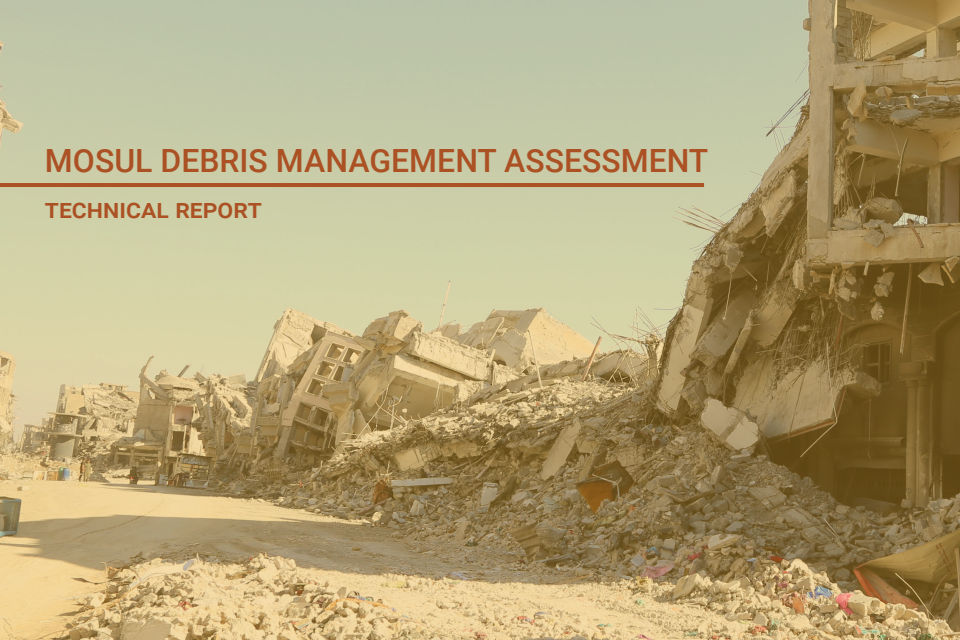Assessing the environmental the technical considerations for the management of conflict debris in Mosul.

Based on an official request from the Iraqi Government for support in assessing the environmental impacts from the ISIL conflict, the United Nations Environment Program (UNEP) is providing technical assistance since July 2017 to national partners in two main areas: i) assessment and management of conflict debris; and ii) assessment and clean-up of contaminated sites. Specifically, UNEP and UN-Habitat initiated an assessment to quantify the volume and distribution of debris in the city of Mosul. Furthermore, UNEP commissioned and partnered with Disaster Waste Recovery (DWR) and Urban Resilience Platform (URP) – two organisations with extensive experience in conflict debris management – to model different operational approaches available to the city of Mosul for debris removal.
The results of this debris assessment and modelling are provided in this document, and were discussed at a workshop held in Mosul University on 19-20 March 2018 organized by UNEP and UN-Habitat in collaboration with national partners. Key stakeholders participating in the workshop include the Committee Responsible for the National Effort to Restore Services in Ninewa Governorate, Mosul Municipality, Ministry of Health and Environment, judiciary, Ninewa antiquities inspectorate, civil protection authorities, civil society and private sector representatives, academia and UN and international development agencies.
The workshop sought to provide a central forum on debris management and achieve four main objectives:
1. Agree on the need for a multi-stakeholder city-wide debris management master plan;
2. Deliberate on the key issues that need to be addressed in a debris plan;
3. Establish a mechanism and process for the creation of this plan; and;
4. Define the success criteria for the plan including identifying key ways to impact desired results.





